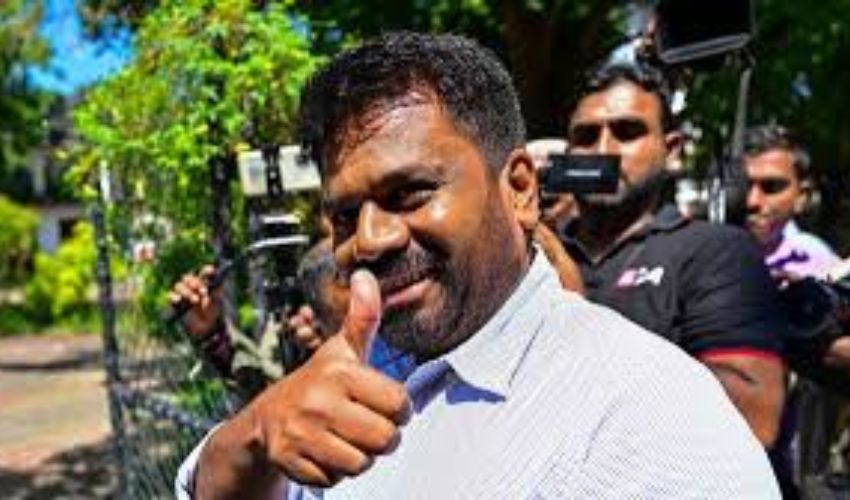Sri Lanka’s crisis has primarily stemmed from severe economic mismanagement compounded by the impacts of COVID-19. In a decisive move, the newly elected President Anura Kumara Dissanayake dissolved Parliament late Tuesday and called for a parliamentary election in less than two months to consolidate his power following his election victory over the weekend.
A government notification confirmed that Parliament was dissolved effective midnight Tuesday, with the election scheduled for November 14, a promise Dissanayake made during his campaign. His party currently holds only three seats in the 225-member Parliament, and this snap election could help him gain control while his approval ratings remain favorable.
The dissolution followed Dissanayake’s swearing-in of Harini Amarasuriya, a female lawmaker from his coalition, as prime minister, marking the first woman to lead the government in 24 years. Amarasuriya, 54, is a university lecturer and activist, sharing a similar background with Dissanayake. Both are part of the Marxist-leaning National People’s Power coalition, which is currently in opposition in Parliament.
Dissanayake’s victory came as Sri Lankans rejected the old political elite, whom they held responsible for the unprecedented economic crisis. The last woman to serve as prime minister was Sirimavo Bandaranaike, who became the world’s first female head of government in 1960 and served until 2000.
Given his party’s lack of a majority, Dissanayake faces challenges in forming a full Cabinet. He had committed to dissolving Parliament and calling for a snap election, with the current Parliament’s term ending next August.
Amarasuriya will also oversee four other ministries, including justice, health, and trade, while another party member, Vijitha Herath, has been appointed minister of six departments, including foreign affairs and transport.
One of Dissanayake’s major challenges will be to deliver on his campaign promise to ease the stringent austerity measures imposed by his predecessor, Ranil Wickremesinghe, as part of an IMF relief agreement after Sri Lanka defaulted on its debt. Wickremesinghe has cautioned that altering the fundamentals of the bailout agreement could delay the release of a nearly $3 billion tranche.
The crisis in Sri Lanka has roots in significant economic mismanagement and the repercussions of the COVID-19 pandemic, which, along with the 2019 terrorist attacks, devastated the vital tourism sector. Since universal suffrage was introduced in 1931, Sri Lankan politics have been predominantly male-dominated, reflecting a global trend; in 2023, a Pew Research Center analysis found only 13 of the 193 UN member states had women as heads of government.
Sirimavo Bandaranaike’s daughter, Chandrika Kumaratunga, later became the first and only female president, serving from 1994 to 2005.


